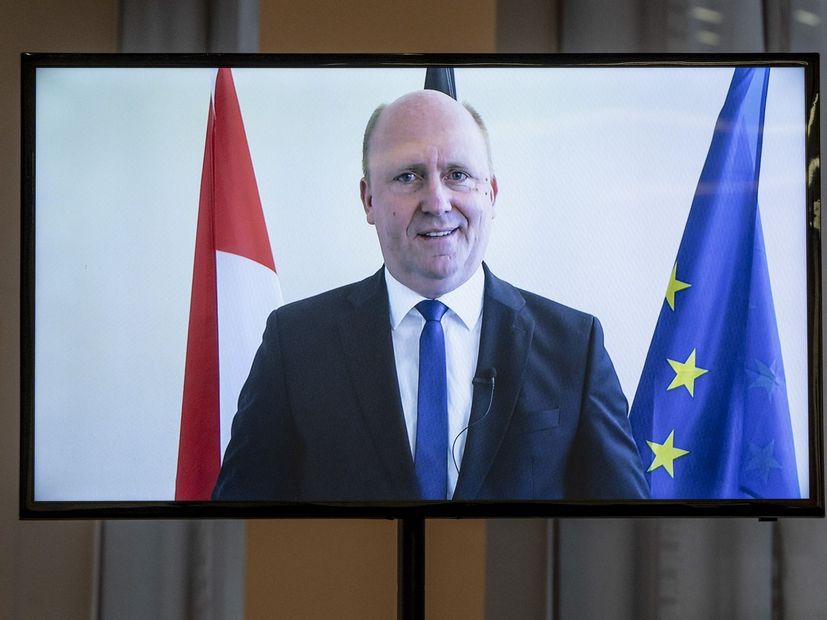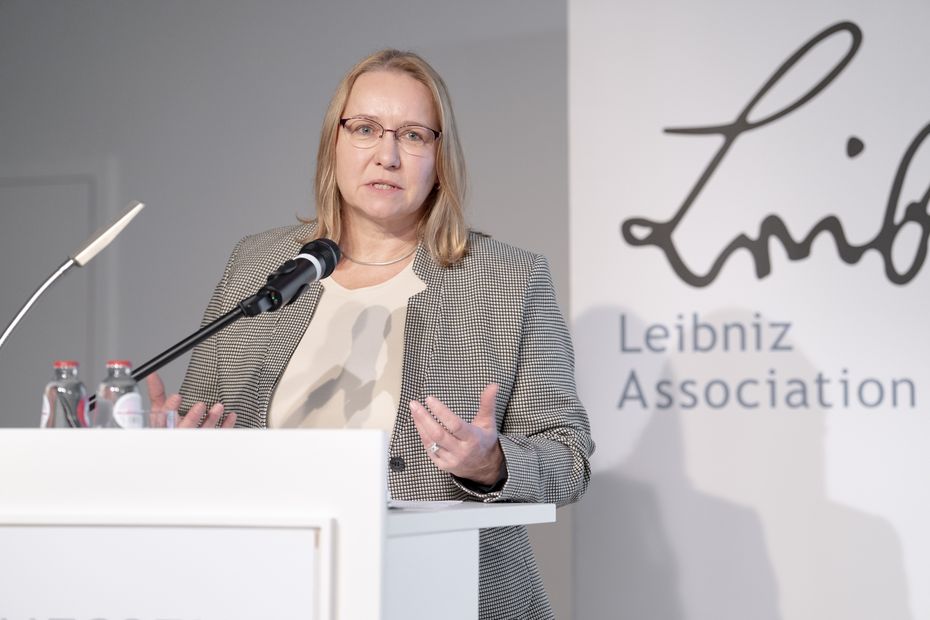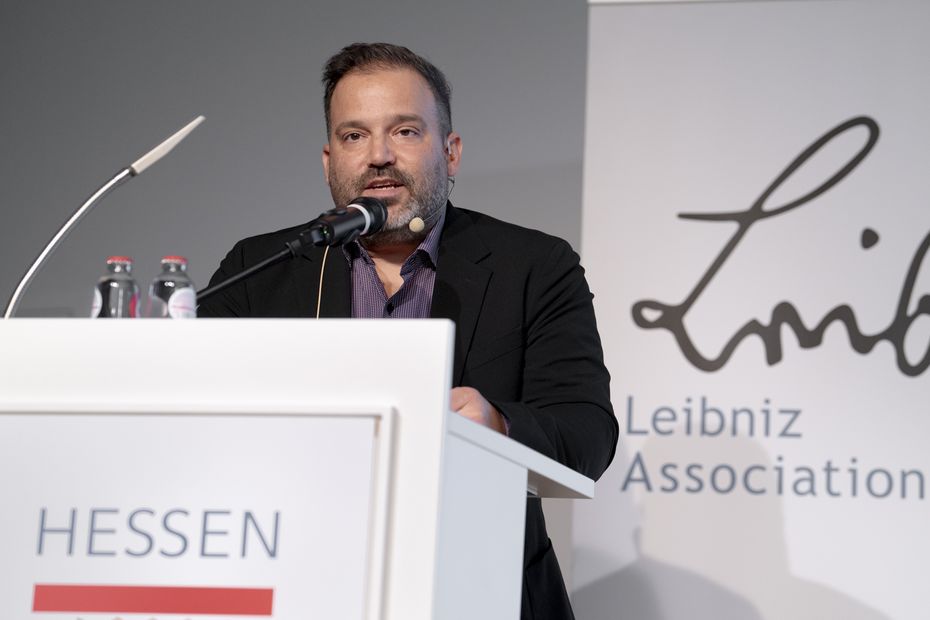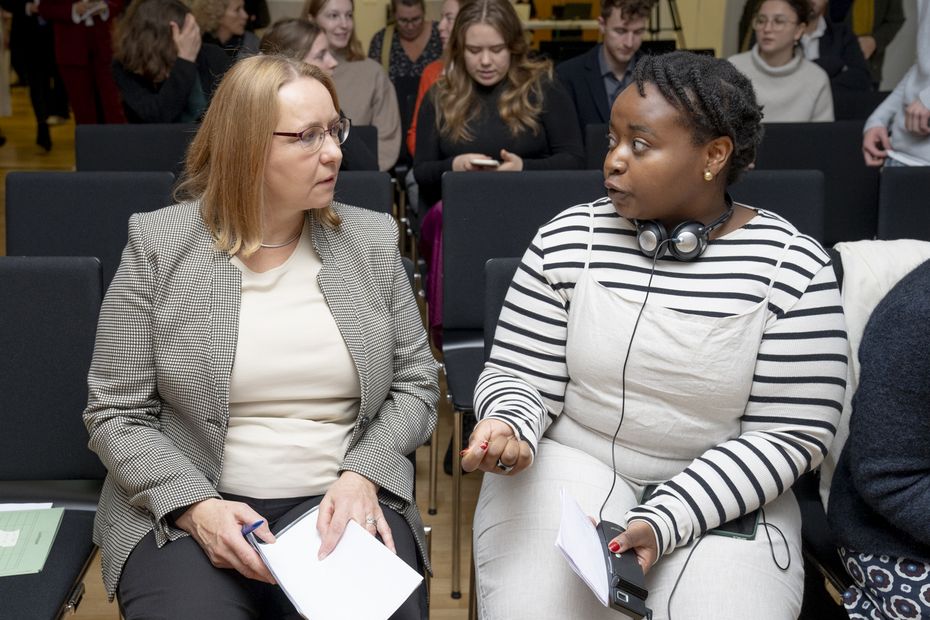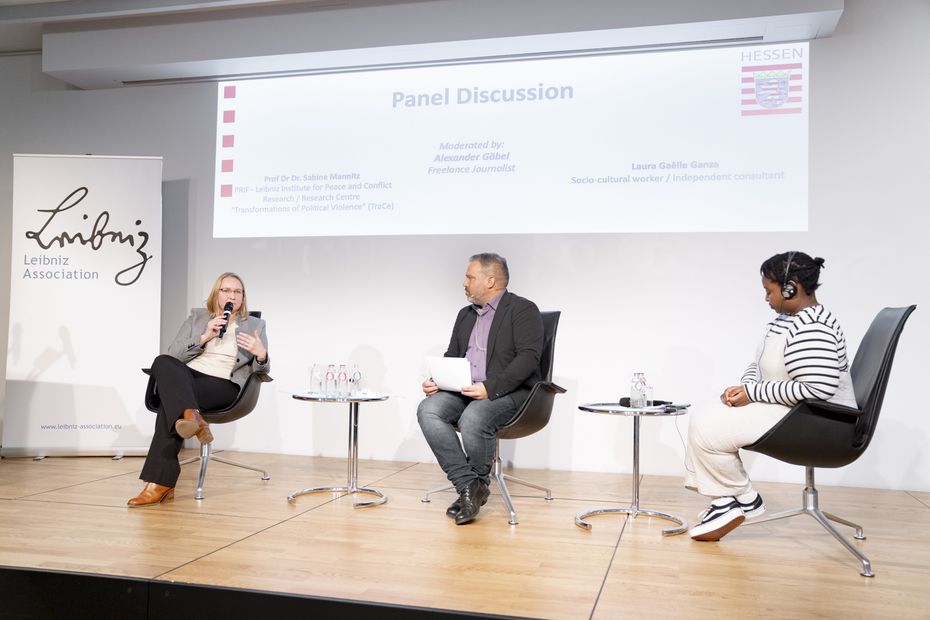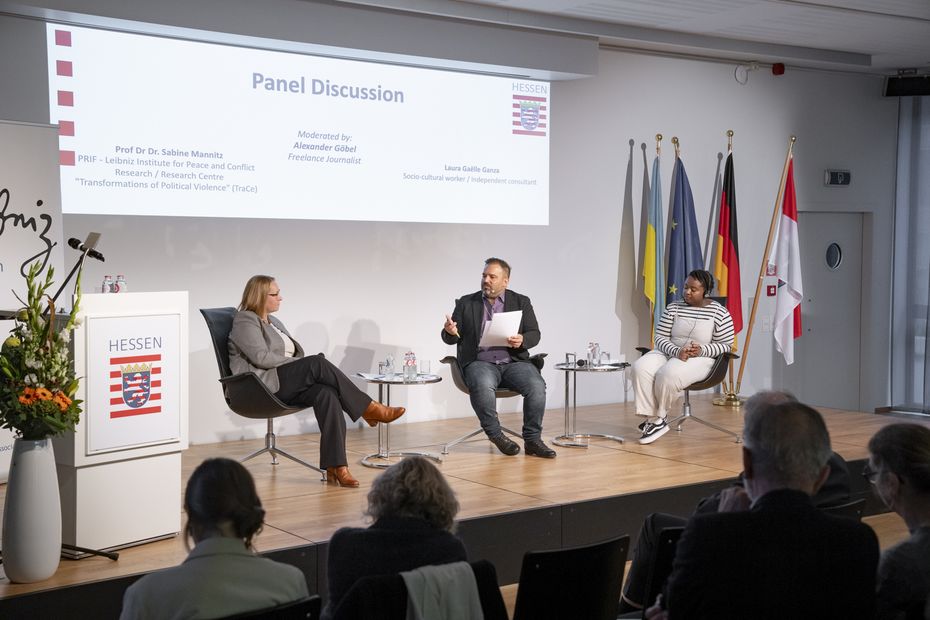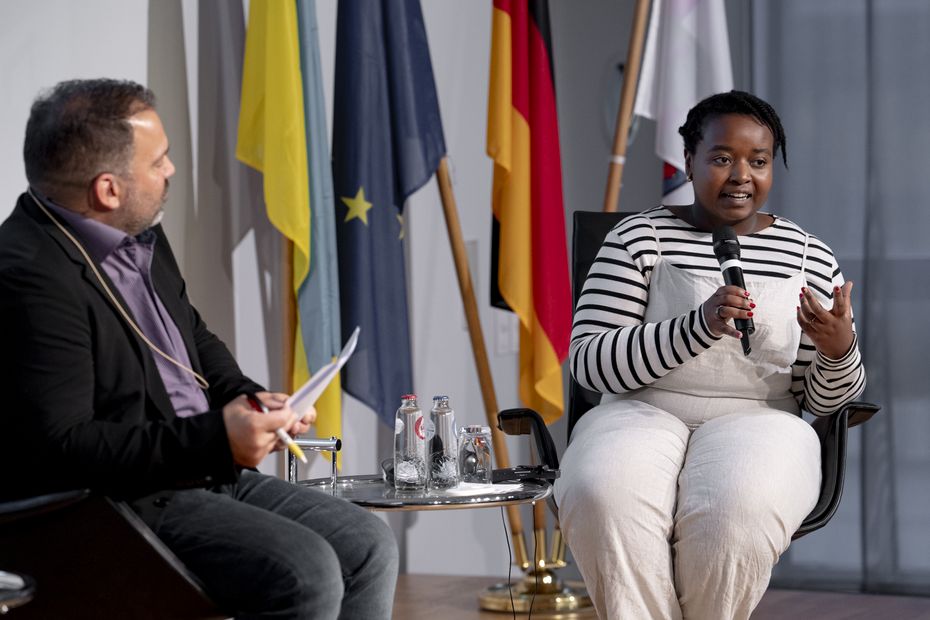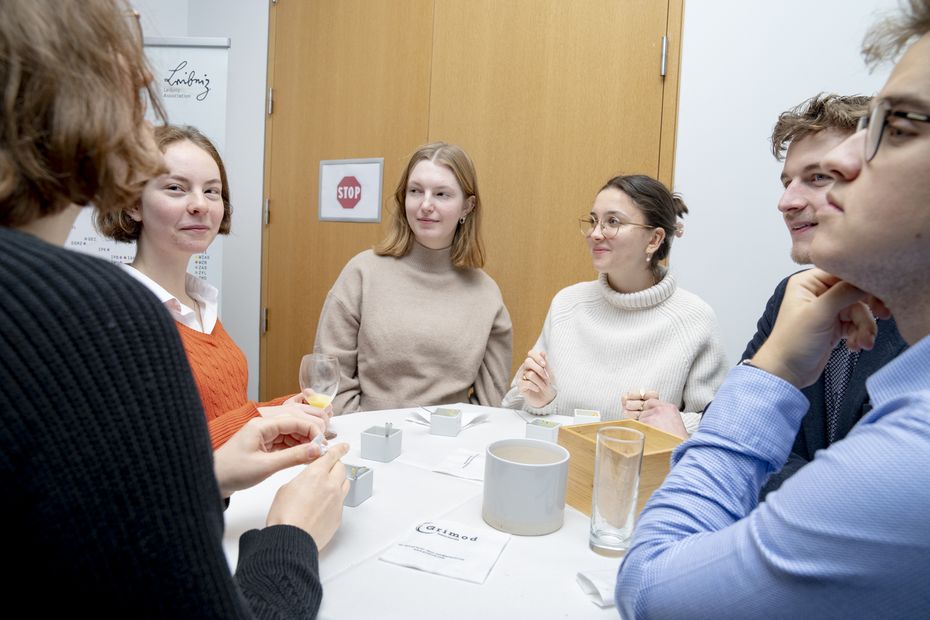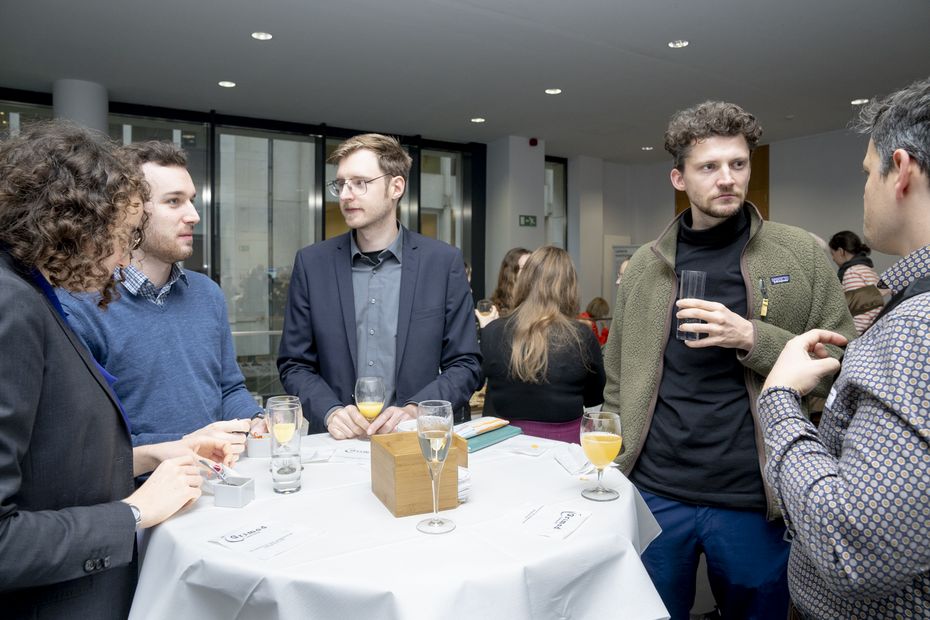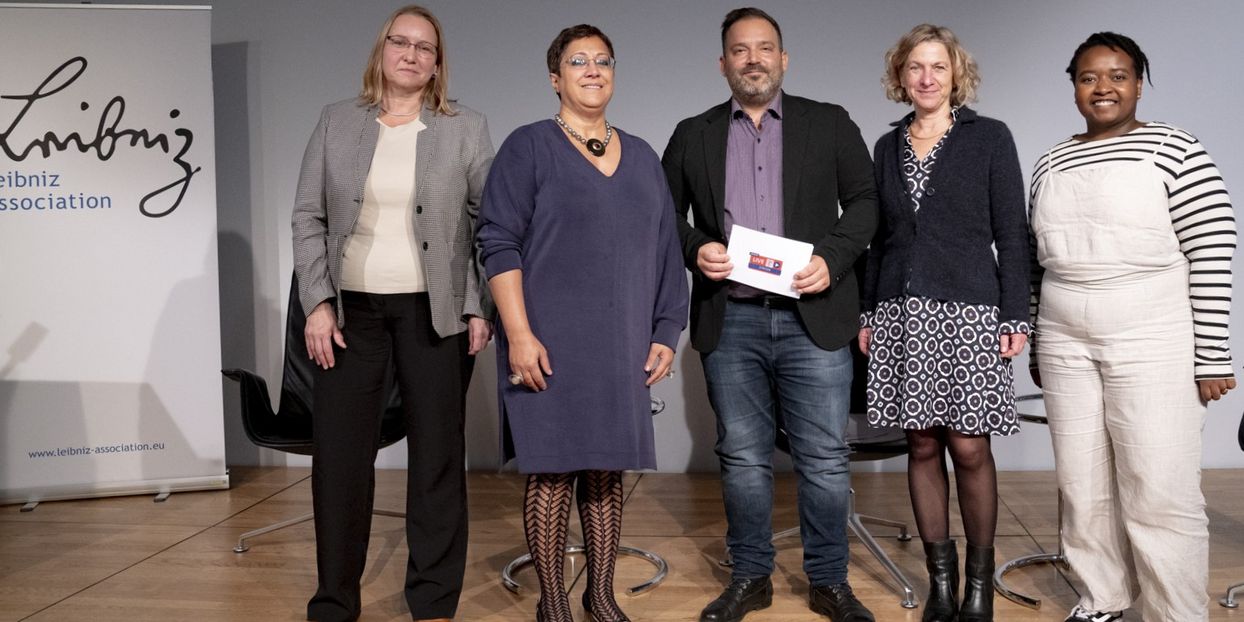
Coming to Terms with Colonial Violence – Possibilities of Postcolonial Remembrance Politics
Crisis Talk on 14 December 2023
This review was first published on the website of the Research Centre "Transformations of Political Violence" (TraCe) and has been adapted for this website.
The event at the Hessian State Representation in Brussels had a special feature: The Research Center “Transformations of Political Violence” (TraCe), an interdisciplinary research network of five Hessian research Institutions: The Peace Research Institute Frankfurt (PRIF), the Goethe University Frankfurt, the Justus Liebig University Giessen, the Philipps University Marburg and the Technical University of Darmstadt, was a guest at the Crisis Talks.
Uwe Becker, State Secretary for European Affairs of the Hessian State Government, opened the event with a short video greeting. He set the mood for the discussion by emphasizing the importance of the multi-layered and complex issues of a post-colonial culture of remembrance, particularly at a European level.
In her keynote speech, Sabine Mannitz stressed the incompleteness of colonial history, the lingering effects of colonial conditions in global power constellations and forms of knowledge production. Instead of approaching colonialism nationally, she called for its reappraisal being understood as a joint European project. Some research and civil society actors are already networked across Europe, but a common European policy is not yet discernible. Yet Brussels in particular could provide important impetus to address the colonial interdependencies that continue to create structural imbalances today. Postcolonial perspectives, for example in school textbooks and museums, are suitable for conveying in context how Western modernity and its economic rise were based on colonial conquests. Making this visible could contribute to a culture of remembrance in which relations of violence and their conditions are less hushed up and better understood.
On the subsequent panel, moderated by journalist Alexander Göbel, Sabine Mannitz's academic input was supplemented by positions from Laura Gaëlle Ganza. As an independent consultant, she contributed perspectives from the cultural sector in particular: First and foremost, she pointed out that a clear stance on the European colonial era does not exist, not even in museums. Nonetheless, colonial heritage is deeply rooted in our lives and is often invisible. Therefore it must be uncovered to be able to dismantle it – for which a clear stance is necessary. In her contributions, Mannitz emphasized, among other things, the importance of cooperation at eye level when it comes to dealing with colonial violence. However, due to structural obstacles (such as restrictive visa regulations), this is often made more difficult with countries in the Global South.
The panel discussion was rounded off by numerous and stimulating questions from the audience, which underlined the relevance of the topic. The event brought together almost one hundred people from various (political) institutions in Brussels.
Program
Welcome
Lucia Puttrich
Minister for European and Federal Affairs of the State of Hessen
Dr Stefan Kroll
PRIF-Leibniz Peace Research Institute Frankfurt
Keynote
Dr Sabine Mannitz
Leibniz Peace Research Institute Frankfurt/
Research Center “Transformations of Political Violence” (TraCe)
Panel discussion
Dr Sabine Mannitz
Salima Yenbou
Member of the European Parliament
Laura Gaëlle Ganza
Socio-cultural worker & Independent consultant
Moderated by
Alexander Goebel
Freelance Journalist

